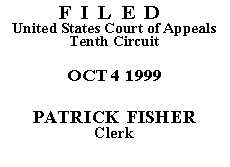

| CLIFFORD EATON,
Plaintiff-Appellant, v. KENNETH S. APFEL, Commissioner, Social Security Administration, Defendant-Appellee. |
|
Plaintiff Clifford A. Eaton appeals the district court's affirmance of the final decision of the Commissioner of Social Security denying his application for supplemental security income (SSI). Because the administrative law judge (ALJ) in this case did not adequately link his credibility findings to relevant evidence in the record, we reverse and remand for further proceedings.
Plaintiff filed this second application for SSI benefits in August 1994, alleging an inability to work due to cardiomyopathy with congestive heart failure, diabetes, obstructive sleep apnea syndrome, and hypertension. After a hearing, the ALJ determined that plaintiff could return to his former employment as a night club manager. The Appeals Council denied review, making the ALJ's decision the final decision of the Commissioner. The district court affirmed, and this appeal followed.
We review the agency's decision to determine only whether the factual findings are supported by substantial evidence and the correct legal standards were applied. See Goatcher v. United States Dep't of Health & Human Servs., 52 F.3d 288, 289 (10th Cir. 1995). Substantial evidence is "such relevant evidence as a reasonable mind might accept as adequate to support a conclusion." Richardson v. Perales, 402 U.S. 389, 401 (1971) (further quotation omitted).
Plaintiff argues that the ALJ improperly evaluated his subjective complaints. At the hearing, plaintiff testified his ability to work was limited by shortness of breath, chest pain, leg cramps, and fatigue. His medical records show several hospitalizations for cardiomyopathy with congestive heart failure, diabetes, hypertension, pulmonary disease, and ischemia. These records report consistently that plaintiff suffers from chest pain, shortness of breath, and fatigue. The ALJ rejected plaintiff's complaints without explanation, stating only
As to the claimant's allegations of totally disabling pain, his testimony was evaluated and compared with prior statements and other evidence. It is the conclusion of the [ALJ] that the pain experienced by the claimant is limiting but, when compared with the total evidence, not severe enough to preclude all types of work. The issue is not the existence of pain, but whether the claimant's pain is of sufficient severity as to preclude him from engaging in all types of work activity.
Appellant's App., Vol. II at 19. No mention was made of plaintiff's shortness of breath or fatigue, and no evidence was cited to support the ALJ's decision to disregard plaintiff's testimony. Such a conclusory analysis does not satisfy the requirements of Kepler v. Chater, 68 F.3d 387, 391 (10th Cir. 1995), which requires the ALJ to make express findings linking his credibility determination to relevant record evidence when rejecting plaintiff's subjective complaints. For this reason, the decision must be reversed, and the case remanded for further proceedings.
Plaintiff's second issue is without merit. Citing Winfrey v. Chater, 92 F.3d 1017, 1023-25 (10th Cir. 1996), plaintiff argues the ALJ erred in failing to determine the stress requirements of his former work as a night club owner. The medical records do not contain any limitations on plaintiff's ability to handle stress, however, and it would be inappropriate to presume that his heart disease and hypertension imposed such a limitation in the absence of a medical opinion so stating.
The judgment of the United States District Court for the Northern District of Oklahoma is REVERSED, and the case is REMANDED for further proceedings.
Entered for the Court
Circuit Judge
*. This order and judgment is not binding precedent, except under the doctrines of law of the case, res judicata, and collateral estoppel. The court generally disfavors the citation of orders and judgments; nevertheless, an order and judgment may be cited under the terms and conditions of 10th Cir. R. 36.3.